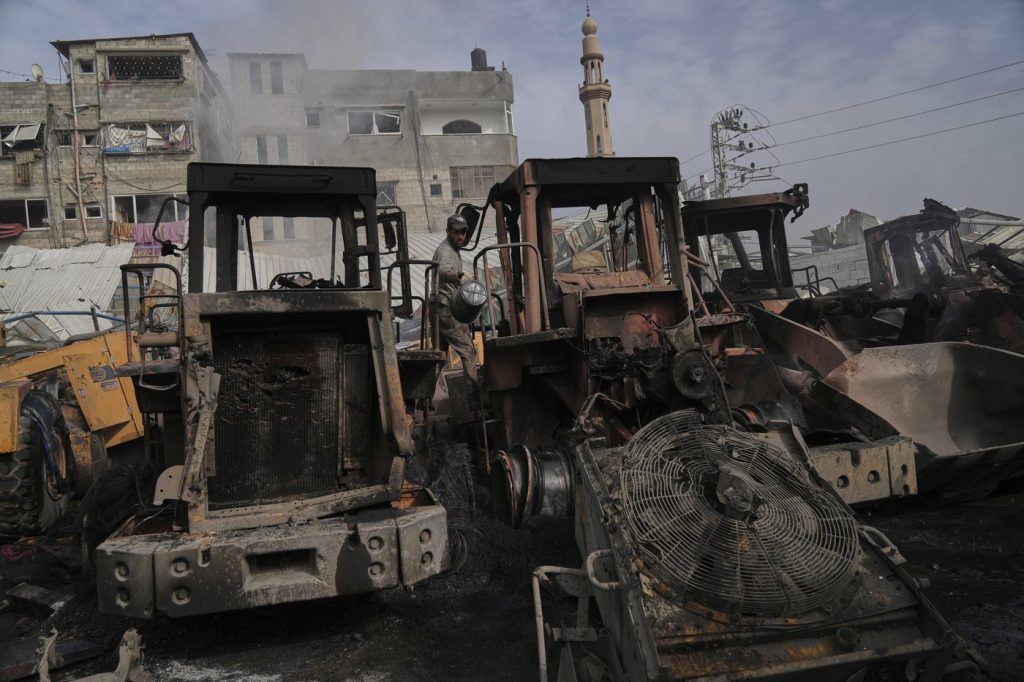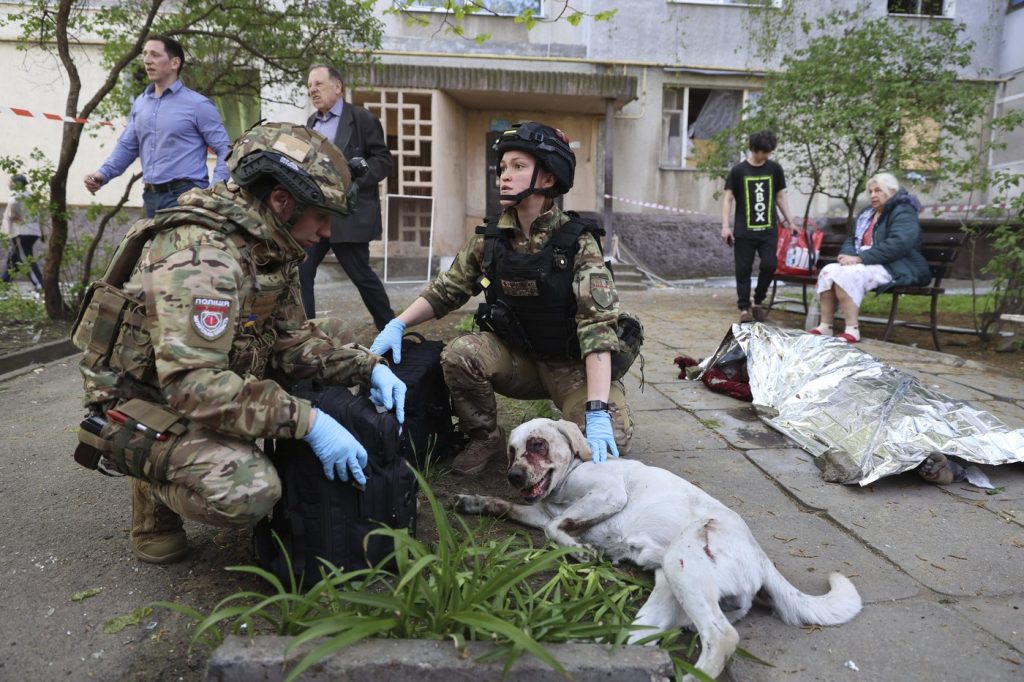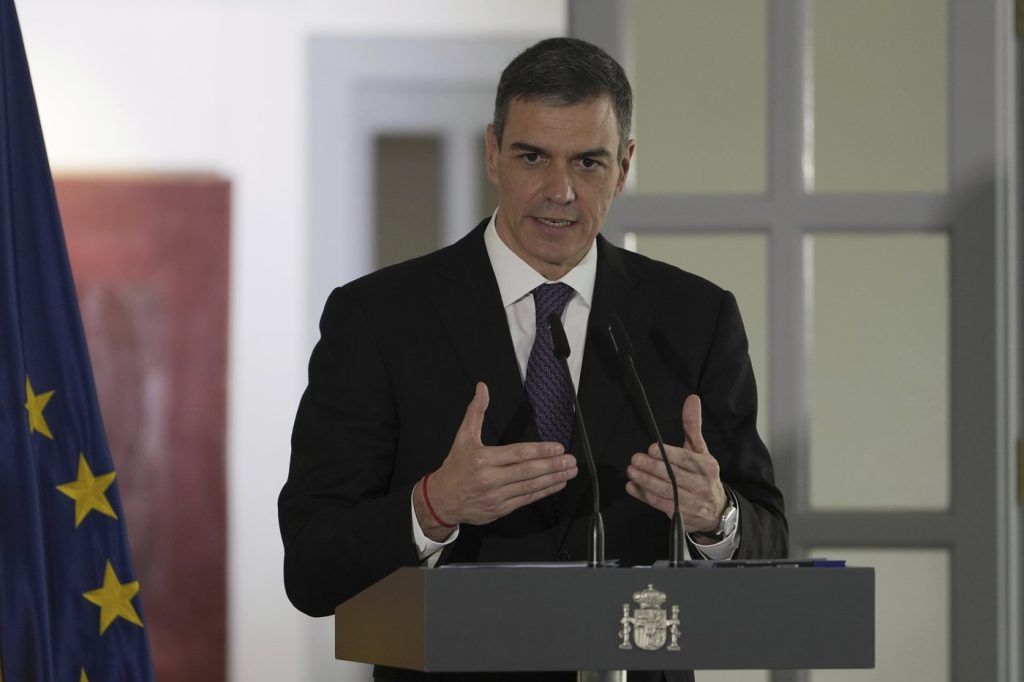DEIR AL-BALAH, Gaza Strip (AP) – Israeli strikes on the Gaza Strip resulted in the deaths of at least 17 Palestinians, primarily women and children, and caused significant damage to heavy machinery that had been supplied by mediators for rubble clearance. Concurrent strikes in Lebanon resulted in two additional fatalities.
On Tuesday, Israeli Prime Minister Benjamin Netanyahu engaged in a phone call with former President Donald Trump, following their meeting in Washington two weeks prior. Trump noted on his social media platform, Truth Social, that their conversation encompassed various topics, including trade and Iran, stating, "The call went very well – We are on the same side of every issue." However, Netanyahu's office did not issue an immediate comment regarding the call, and his recent trip to Washington was perceived as less than successful, particularly concerning key issues like curbing Iran's nuclear ambitions, tariff reductions, Turkish influence, and the ongoing conflict in Gaza.
Israel's extended offensive against Hamas, now over 18 months long, has left extensive destruction across Gaza, intensifying concerns that substantial areas may never be rebuilt. The enclave already faced a shortage of essential machinery necessary for rescuing individuals trapped under rubble and for clearing critical pathways. The Israeli military reported the destruction of approximately 40 pieces of heavy machinery, asserting that Hamas misused these vehicles for deploying explosives, constructing tunnels, and breaching security barriers during the October 7, 2023, assault.
A municipality in Jabaliya, located in northern Gaza, indicated that a strike on its parking garage demolished nine bulldozers provided by Egypt and Qatar, nations that facilitated a ceasefire in January. Israel concluded the truce last month, leading to a resurgence of bombings and ground operations that have left the territory's 2 million residents isolated from all imports, including food, fuel, and medical supplies.
Among the strikes, an early morning attack destroyed a multistory building in Khan Younis, claiming nine lives, including four women and four children. Nasser Hospital confirmed the fatalities, which included a 2-year-old girl and her parents. "They were asleep, sleeping in God's peace. They had nothing to do with anything," lamented Awad Dahliz, the grandfather of the deceased girl. Additional attacks in the densely populated Jabaliya refugee camp resulted in the deaths of three children and their parents, while another strike in Nuseirat killed a man and two children. The Israeli military has yet to comment on these specific strikes but has previously accused Hamas of utilizing civilian infrastructure for military objectives.
The conflict has resulted in over 51,000 Palestinian deaths, majority of whom are women and children, according to the Gaza Health Ministry. The report does not specify the civilian versus militant casualty ratio, while Israel claims to have killed around 20,000 militants but has yet to provide supporting evidence. The outbreak of hostilities traces back to the October 7, 2023, incursions by Hamas militants into southern Israel, leading to approximately 1,200 deaths and 251 hostages taken, with 59 hostages still held, 24 of whom are believed to be alive. Hamas asserts it will release hostages only in exchange for Palestinian prisoners, a full withdrawal by Israel, and a lasting ceasefire. Conversely, Israel maintains it will continue military actions until the hostages are returned and Hamas is dismantled or forced into exile, while intending to establish security zones in Gaza indefinitely.
In Lebanon, an Israeli drone strike near Beirut killed Hussein Atwi, a member of the local branch of the Muslim Brotherhood. The group reported he was on his way to work when the drone targeted him. Furthermore, Lebanon's Health Ministry confirmed an additional fatality from an Israeli strike in the southern Tyre province, which targeted a militant commander according to Israeli sources. Despite a ceasefire established with Hezbollah in November, Israel continues to conduct airstrikes across Lebanon, asserting its aim is to target militants and their weapon caches. The Lebanese government has reported 190 confirmed deaths and 485 injuries since the ceasefire agreement.
The situation escalated further when Hezbollah responded with fire towards Israel following Hamas's October 7 attack. This led to intense Israeli airstrikes aimed at neutralizing Hezbollah's leadership, resulting in a severe uptick in conflict as Israel demonstrated a willingness to conduct extensive military operations.
In a related development, two senior members of the Palestinian Islamic Jihad group were reportedly arrested in Syria without any explanations given, with no comment issued by the Syrian government. This arrest coincided with a visit from Palestinian President Mahmoud Abbas to Damascus, marking his first engagement in Syria since the 2011 uprising, which later contributed to the civil war that saw the ousting of President Bashar Assad. Abbas leads the Western-backed Palestinian Authority, which holds political disagreements with Hamas.












